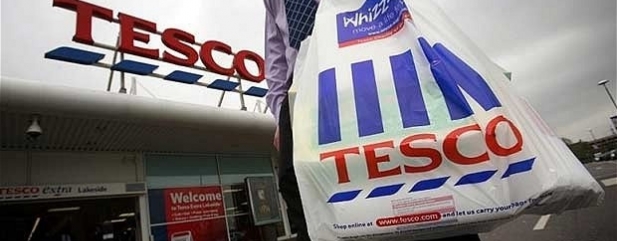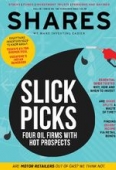Archived article
Please note that tax, investment, pension and ISA rules can change and the information and any views contained in this article may now be inaccurate.
We like Tesco’s £3.7bn plan to buy Booker

Supermarket Tesco (TSCO) gets our vote for its share and cash takeover of food wholesaler Booker (BOK).
There is much to like about the premium-priced £3.7bn deal, although it introduces execution risk into the Tesco narrative and will come under scrutiny from the UK Competition & Markets Authority (CMA). If the deal goes through Tesco will become both a dominant food industry supplier and undisputed leader in the convenience retail sector.
Dividends back on the menu
Chief executive officer Dave Lewis heralded Tesco’s intention to resume dividend payments alongside the takeover news.
Lewis believes the enlarged group will be well placed to serve the large, established ‘in home’ food market and the faster growing ‘out of home’ food market and has identified £200m of annual cost benefits.
Tesco and Booker both operate in mature markets. AJ Bell Investment Director Russ Mould suspects there is an idea to create growth where little exists, ‘even if Tesco boss Dave Lewis and his equivalent at Booker Charles Wilson would doubtless argue the deal will augment gathering momentum in the two separate businesses.’
On the plus side, the Booker deal brings diversification through a move into domestic wholesale and opportunity to supply the target’s convenience stores with Tesco’s own label products.
Shore Capital analyst Clive Black is surprised by the mooted merger, saying it represents a considerable volte face in strategic direction by both companies. ‘Elements of Bookers’ shareholder base may feel that a relatively pure-play cash rich, cash generative and high yielding organisation, meriting a premium equity multiple rating, will effectively be subsumed and polluted through its absorption by Tesco,’ he comments.
Reiterating his ‘hold’ rating on Tesco, Black adds ‘Perhaps the most interesting question is what does the proposed merger mean for Booker and its shareholders?
‘In a nutshell we believe that it is the end of the Booker that we have admired for some years.
‘Accordingly, for investors who wanted a stake in an excellent management team, strengthening market positions in its respective segments and so driving strong free cash generation to sustain an ongoing programme of ordinary and special dividends, then the road is coming to an end in its 2018 financial year.’
Important information:
These articles are provided by Shares magazine which is published by AJ Bell Media, a part of AJ Bell. Shares is not written by AJ Bell.
Shares is provided for your general information and use and is not a personal recommendation to invest. It is not intended to be relied upon by you in making or not making any investment decisions. The investments referred to in these articles will not be suitable for all investors. If in doubt please seek appropriate independent financial advice.
Investors acting on the information in these articles do so at their own risk and AJ Bell Media and its staff do not accept liability for losses suffered by investors as a result of their investment decisions.

 magazine
magazine








